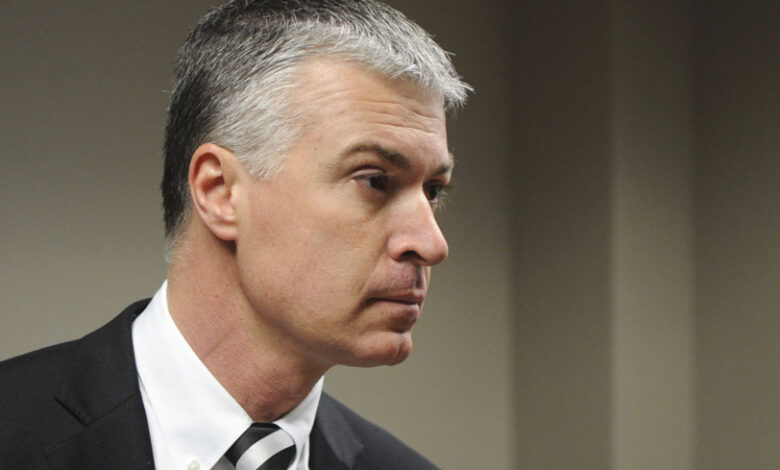Jackley joins letter accusing academy of violations over gender-care policies

Idaho Attorney General Raúl Labrador – along with attorneys general and other officials from 20 U.S. states, including South Dakota Attorney General Marty Jackley – has accused the American Academy of Pediatrics of possible “violations of state consumer protection statutes” over its standards and recommendations for gender dysphoria care for children.
In a letter sent by Labrador on Tuesday, the attorneys general requested information detailing the academy’s evidence for its current recommendations for puberty blockers for gender dysphoria-diagnosed youth.
“Most concerning, AAP claims that the use of puberty blockers on children is safe and reversible,” Labrador’s office said in a press release. “This assertion is not grounded in evidence and therefore may run afoul of consumer protection laws in most states.”
Children with gender dysphoria “need and deserve love, support, and medical care rooted in biological reality,” Labrador said in the release.
“It is shameful the most basic tenet of medicine – do no harm – has been abandoned by professional associations when politically pressured,” Labrador said. “These organizations are sacrificing the health and well-being of children with medically unproven treatments that leave a wake of permanent damage.”
The American Academy of Pediatrics, an organization made up of 67,000 primary care pediatricians, voted in August to reaffirm its 2018 policy statement on gender-affirming care and authorized development of an expanded set of guidance for pediatricians.
The organization could not immediately be reached for comment. But at the organization’s August 2024 leadership conference in Itasca, Illinois, American Academy of Pediatrics CEO and Executive Vice President Mark Del Monte emphasized that the organization is confident that the principles presented in the original policy statement, “Ensuring Comprehensive Care and Support for Transgender and Gender-Diverse Children and Adolescents,” remain in the best interest of children, according to an Aug. 4 press release from the academy.
The decision to authorize a systematic review reflects the academy’s board’s concerns about restrictions to access to health care with bans on gender-affirming care in more than 20 states, according to the Aug. 4 release.
In Idaho, the Legislature passed House Bill 71, a law banning Idaho youth from receiving gender-affirming care medications and surgeries. It was signed into law by Gov. Brad Little in April 2023.
The law makes it a felony punishable for up to 10 years for doctors to provide surgeries, puberty-blockers and hormones to transgender people under the age of 18. However, gender-affirming surgeries are not and were not performed among Idaho adults or youth before the bill was signed into law, the Idaho Capital Sun previously reported.
What is in the American Academy of Pediatrics guidelines for gender-affirming care?
As outlined in its policy statement, the academy encourages pediatricians to use a gender-affirmative care model when treating young patients. The model encourages pediatricians to recognize that:
However, Labrador said treatments that suppress hormones or use puberty blockers may have adverse health effects to the patient, including interfering with neurocognitive development, compromising bone density and interfering with normal puberty experiences. He said the treatments may cause “harm particularly egregious” to children who “grow out” of the condition by the time they are adults.
But the American Academy of Pediatrics in its policy statement says that research shows that children who assert their transgender identity before puberty and who “know their gender as clearly and as consistently” as their cisgender peers benefit from the same level of social acceptance as those peers.
“More robust and current research suggests that, rather than focusing on who a child will become, valuing them for who they are, even at a young age, fosters secure attachment and resilience, not only for the child but also for the whole family,” the academy wrote in its policy statement.
But Labrador and the other state officials say they want more information on how the academy has come to those conclusions, especially when it comes to puberty blockers.
“The letter requests detailed information from the AAP regarding its communications and practices related to youth gender dysphoria and substantiation of the academy’s claims regarding the safety and reversibility of puberty blockers,” the attorney general’s press release says.
Other states joining Idaho in sending the letter to the academy include officials from Alabama, Arizona, Arkansas, Florida, Georgia, Iowa, Kansas, Louisiana, Mississippi, Missouri, Montana, Nebraska, North Dakota, Ohio, South Carolina, South Dakota, Texas, Utah, Virginia and West Virginia.




